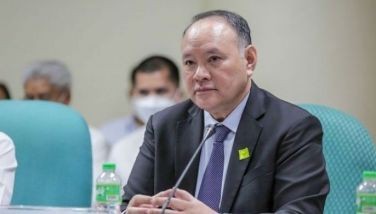IMF to Phl: Ease rules on foreign ownership
MANILA, Philippines - The International Monetary Fund (IMF) has urged the Philippines to relax its foreign ownership rules to improve the business climate.
This came as the multilateral agency gave policy recommendations to the Philippines in order to sustain economic growth and make it more inclusive.
Over the long term, the IMF said the Philippines must be able to utilize capital flows for bigger projects such as public-private partnerships (PPP) by continuously improving the business climate.
“Improving the investment climate by allowing more foreign ownership, timely and transparent execution of PPPs, and adopting a continuously rolling medium-term fiscal plan would promote FDI (foreign direct investments),†the IMF said in its Article IV staff report for the country released Thursday night.
The staff report details the findings of the IMF’s annual Article IV consultation with member-countries, conducted in the Philippines last January. The examination delves on the whole economy.
Praises were given for the country’s maneuver in the fragile global economy last year, being able to grow 6.6 percent. The IMF credited this to low inflation and interest rate environment, exports recovery and sustained remittance inflow.
“The Philippine economy has weathered the volatile global environment well and the outlook is favorable. Macroeconomic fundamentals are on solid footing, but the long-standing challenge of fostering inclusive growth remains,†it said.
The IMF expects the economy to grow six percent this year, but sees it slowing down to 5.5 percent in 2014 and 5.3 percent in 2015. It may inch up to 5.4 percent in 2016 before returning to 5.5 percent in 2017.
Risks remain
The IMF, however, said risks remain, particularly on “large persistent†capital flows due to the still fragile economic scenario abroad. Among others, inflows may stretch asset prices and excessive rise in reserves and too much peso appreciation.
Macroprudential measures put in place by the Bangko Sentral ng Pilipinas (BSP) were “welcome,†but the IMF reiterated the peso should move “broadly†in line with fundamentals.
“Accommodating normal appreciation pressures, but leaning gently against the wind of unusually strong pressures, is recommended, together with greater exchange rate flexibility,†the agency said.
It noted the losses incurred by the BSP in managing the peso’s movement, and urged the government to infuse more capital to the institution and share the burden of losses through a new law.
Meanwhile, the banking system, noted for its continued profitability and low bad loan accumulation, should be monitored for their “increasing exposure†to the real estate sector, for risk of asset bubbles.
“The existing 20-percent limit on a bank’s real estate exposure under the narrow definition should be applied to a more comprehensive measure,†the IMF said.
As of the first half of 2012, property exposure stood at around 15 percent.
The increasing number of non-bank financial institutions must also be checked.
On the fiscal side, the IMF backed the Aquino administration’s tack of improving tax compliance by running against tax evaders and smugglers, but said a reform of the tax system will be necessary to broaden the tax base.
The staff report further said revenue mobilization was one of the most important fiscal challenges that the country faced.
The IMF also welcomed recent actions to address weaknesses in the regime to combat money laundering and the financing of terrorism.
ched $2.9 billion in 2006 and 2007,†he said.
He said for this year, foreign direct investments registered a net inflow of $576 million in January, down by nearly half from $1.05 billion posted in January last year. Consequently, NSO data showed that merchandise exports fell by 15.6 percent in February, the lowest in more than a year, Suarez said. – With Jose Katigbak (STAR Washington Bureau), Paolo Romero
- Latest
- Trending



























